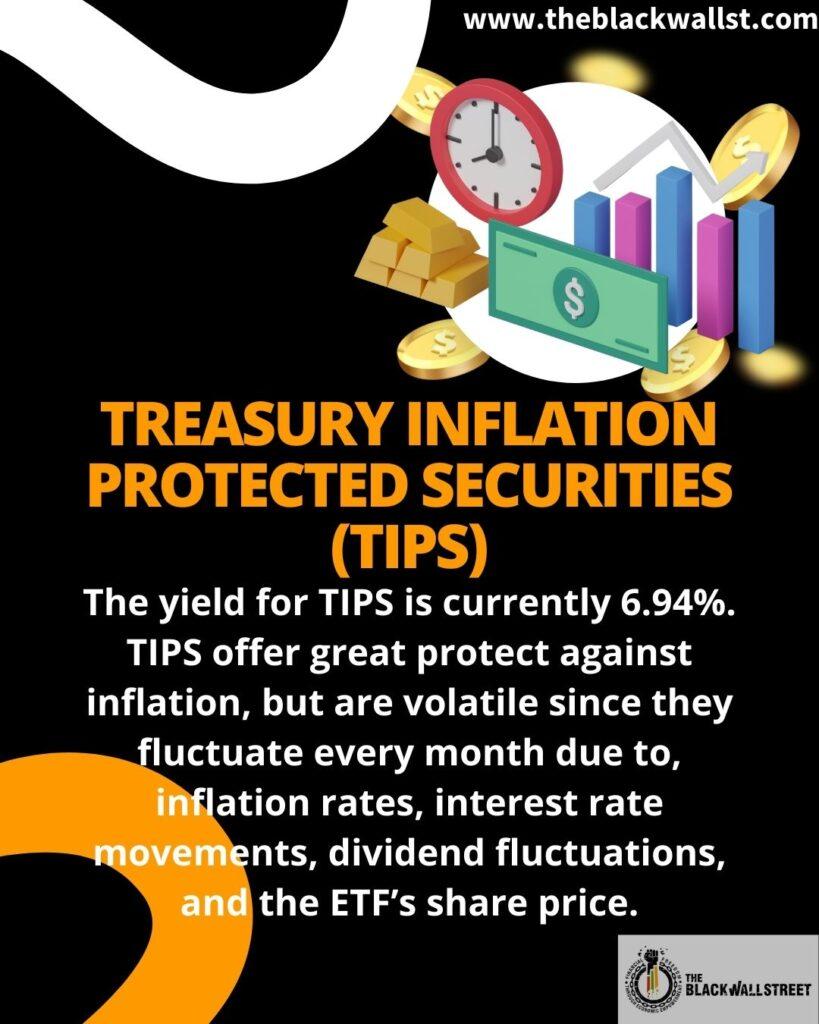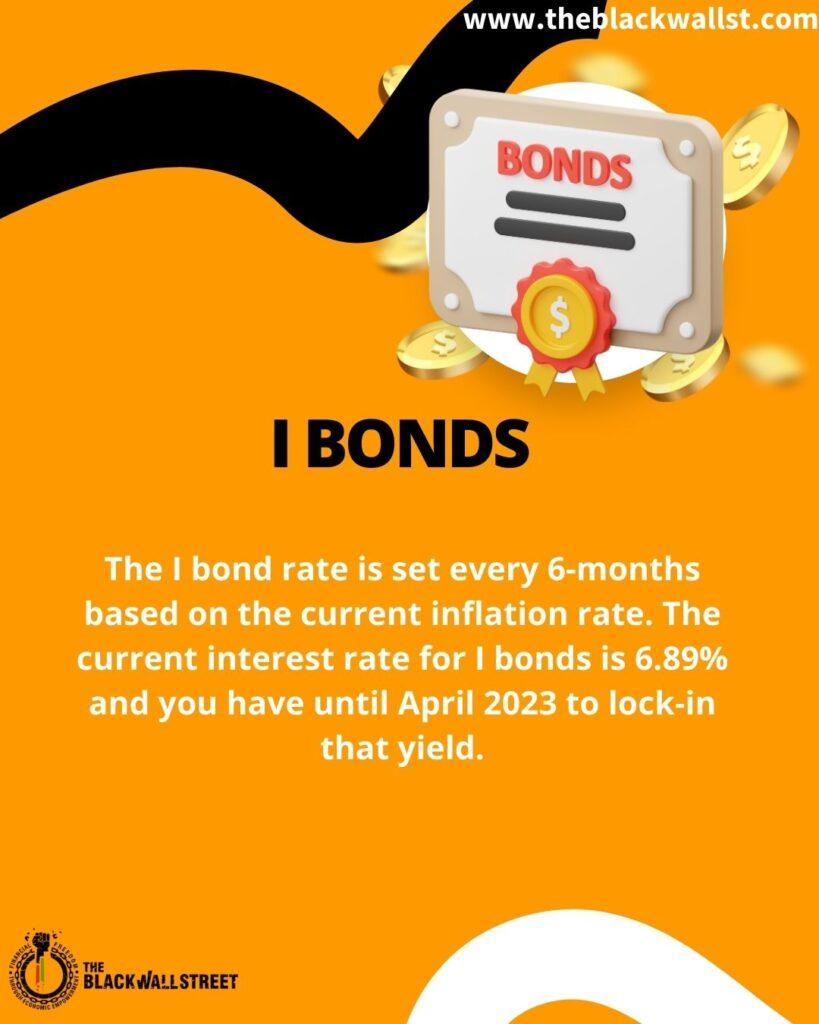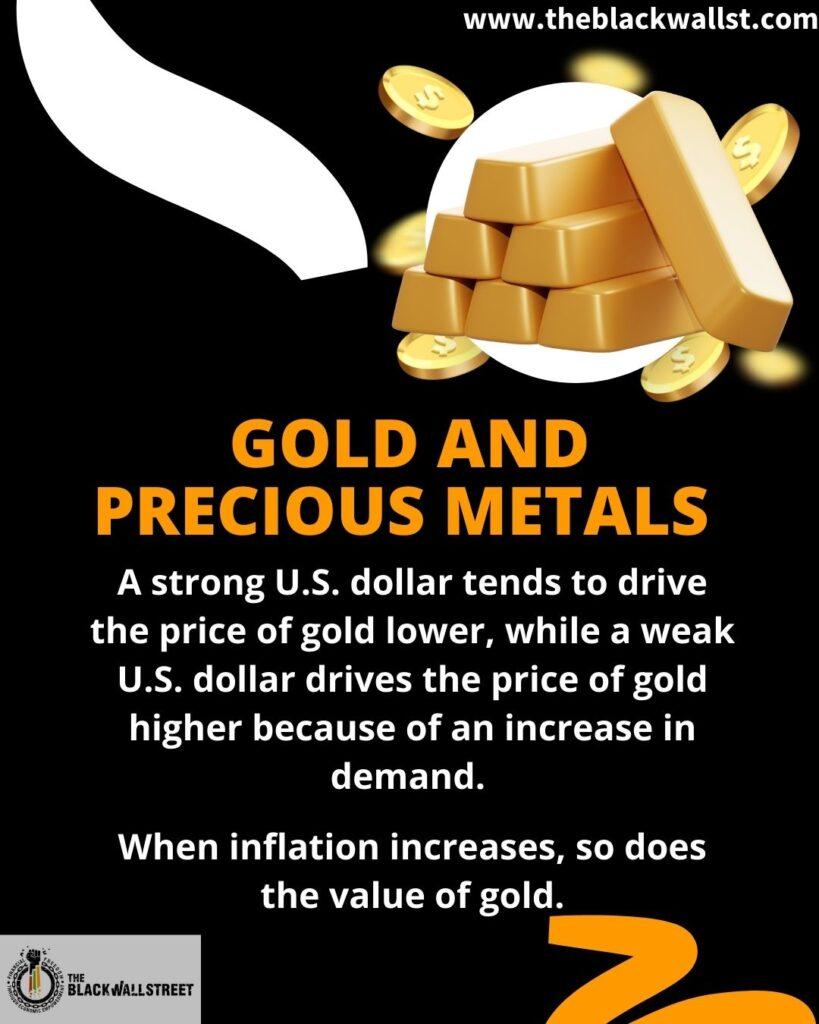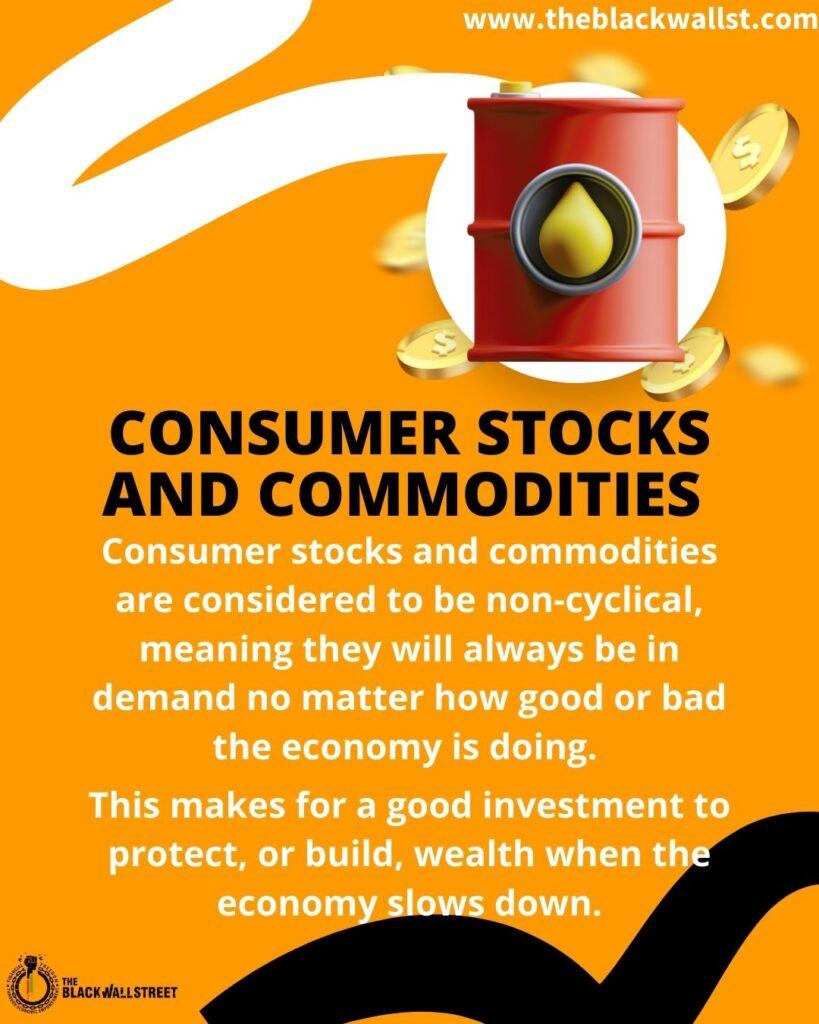Is inflation slowly eating away at your investment portfolio? Here are four alternative investment ideas you can use to hedge against the impacts of inflation and invest in today!
1. Treasury Inflation Protected Securities (TIPS)
The yield for TIPS is currently 6.94%. TIPS offer great protect against inflation, but are volatile since they fluctuate every month due to, inflation rates, interest rate movements, dividend fluctuations, and the ETF’s share price.

2. I Bonds
The I bond rate is set every 6-months based on the current inflation rate. The current interest rate for I bonds is 6.89% and you have until April 2023 to lock-in that yield.

3. Gold and Precious Metals
Gold and other precious metals like silver or platinum are considered to be a safe-havens for investors during shaky economic times because they typically increase in value when the U.S. dollar is weak or when inflation is rising. Gold also has a negative correlation with other financial assets such as stocks and bonds, meaning that when those assets decrease in value gold tends to outperform them.

If you want to invest in gold and other precious metals, but don’t want to make yourself a target by hoard a bunch of gold at home there are a few investment options available to you.
The first option is you can purchase or sell shares in ETFs such as the SPDR GOLD TRUST (GLD) or you can buy gold futures contracts, both allowing you to gain access the gold market via the stock market.
You can also purchase physical gold or precious metals and pay a company or bank to store it for you, but that option can become expensive over time.
4. Consumer Stocks and Commodities
When you invest in consumer stocks, you are purchasing shares in companies that produce consumer staples. Consumer staples are the basic goods that we need or want on a regular basis to live our daily lives. Think of goods like groceries (i.e., Campbell Soup, Coca-Cola), personal care items (i.e., Procter & Gamble, Colgate), and even pharmaceuticals (i.e., Johnson & Johnson, Pfizer) when you hear about consumer staples.
Since these goods are considered to be non-cyclical, meaning they will always be in demand no matter how good or bad the economy is doing, investing in consumer stocks can make for good investments to protect, or build, wealth when the economy slows down.

Commodities are similar to consumer stocks in that people will still purchase them no matter how high the price gets. For example, even when gas prices are high, you’re still going to fill up your car so you can get around.
So, even when the economy slows down and people cut back on consumer staples and commodities, they’ll never completely cut them out of their lives making these good investments for combating inflation.















